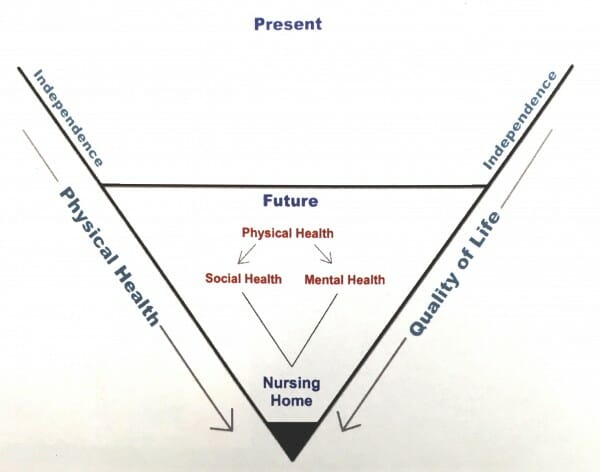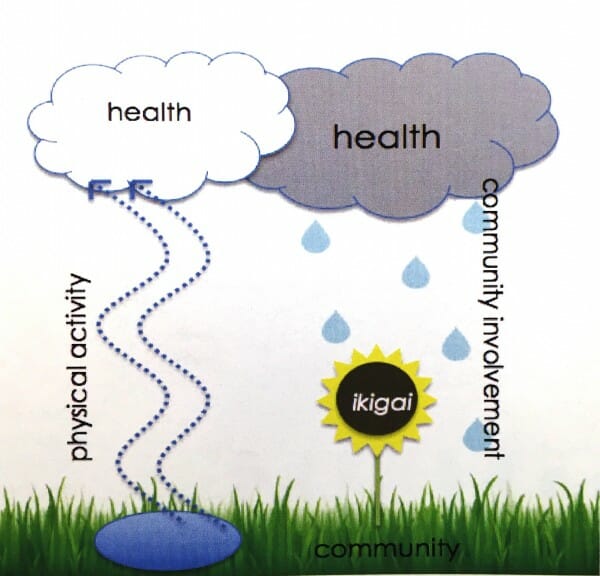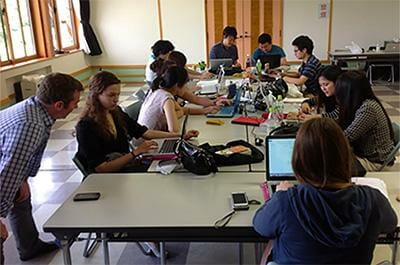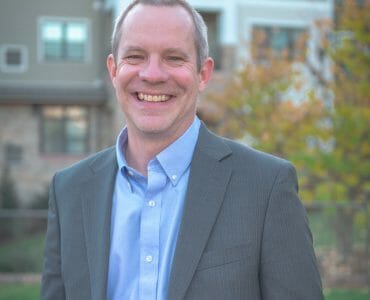Growing older can be both a science and an art. The field of gerontology along with health and medically related topics in aging has become quite vast. And one particular approach is that of the US-Japan Global Scholars Program, which brings together students from Akita International University (AIU) and students from Dickinson College to study problems or issues of mutual interest. For two consecutive years this program has been supported by Dickinson College, AIU and a grant from the Japanese Ministry of Education. Their approach of project based learning investigates the Health-Related Quality of Life (HRQoL) in Older Adults age 65+ in the Capital Region of Central Pennsylvania and Akita City in Akita, Japan.
Our organization has had the pleasure of playing a small role in this learning process. Over the last two years, two groups of students came to Messiah Lifeways and toured our Continuing Care Retirement Community (CCRC) while also learning about our community-based support services and enrichment programs to glean insight and research development.
These students’ journey started when they all took a course entitled Health and Wellness and Later Life: Comparative Research on American and Japanese Practice. They then immersed themselves for nearly 2 months of field research in Harrisburg and Akita City. Messiah Lifeways was fortunate enough to be one of the stops along the way with several other healthcare providers and a local hospital system. Likewise, they spent time visiting comparable sites in Japan.
Their measure of Health-Related Quality of Life or HRQoL was based on older adults’ perceived sense of physical, mental, and social health. Some of their findings included above average HRQoL findings for older adults in both regions with physical health slightly below the population norm and mental health slightly above the population norm. Both groups were found to engage in regular exercise and socialization in order to maintain good physical and mental health. One difference they noted between seniors in the Harrisburg area versus Akita City is their approach to staying positive. In Central Pennsylvania the importance of religious beliefs and practice was a mainstay of a positive attitude. Whereas, in Akita City, older adults attribute having a sense of purpose (known as Ikigai) and active engagement in the community as what keeps them positive. Another difference is the impressions of nursing homes here versus Japan. In the Harrisburg region, older adults tend to fear the loss of independence upon moving into a nursing home. Conversely, in Akita City, older adults would rather move to a nursing home than be a burden on their family.
The study also briefly examines aging policy in both regions, examines population demographics, activity and physical health, and the fostering of increased social and mental health.

One of the most telling findings of this study is the holistic view of aging in the U.S. versus Japan. An inverted triangle shape is used to represent the view of aging in the United States (pictured right). It symbolizes physical health and quality of life inevitably and sizably trending downward as we age, which then culminates into entering a nursing home. In contrast, the graphic for the Japanese view of aging resembles that of a hydrologic cycle of rain, which represents community involvement and where evaporation signifies physical activity (pictured below). These actions nourish the ground or the community and a sunflower represents Ikigai, their sense of purpose. Their view certainly paints a more positive and more desirable picture for growing older.

I believe that our country’s holistic view of aging will evolve to resemble that of countries like Japan. As the average length of life increases and the number of seniors continues to grow, globally we are all feeling the strain financially and emotionally, compounded by an outmanned workforce dedicated to caring for seniors. Adopting a different outlook on aging as a time of helplessness and loss must change. We must reimagine aging and change the conversation. I firmly believe that Messiah Lifeways has recognized this by our desire to embrace life with purpose and zest as we grow older. Thanks to like-minded initiatives like the U.S.-Japan Global Scholars Program for examining these global issues on a microscopic level and contributing to the dialogue for change. Keep up the good work.
If you’d like to learn more about this study and the program, please click here. And thank you to Professor David Sarcone, Department of International Business and Management at Dickinson College.






